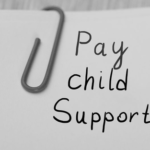Paternity establishment is a crucial legal step for any unmarried father wishing to assert rights and responsibilities regarding their child. By default, when a mother gives birth, she is legally recognized as the child’s parent. However, for an unmarried father to gain the same recognition and legal rights, he must first establish paternity. This may be followed by filing a legal action to secure custody, visitation, and other parental rights.
Do You Have Legal Rights If You Haven’t Signed The Birth Certificate And/Or An Acknowledgment Of Paternity?
Absent a very specific set of circumstances, an unmarried father does not have inherent legal rights to custody, visitation, or decision-making authority regarding the child. In North Dakota, the act of signing the birth certificate alone does not establish legal paternity, though it might be considered evidence in most cases. According to N.D.C.C. § 14-20-11 and N.D.C.C. § 14-20-57 to establish rights, a father must sign the Acknowledgement of Paternity form or obtain an Order Adjudicating Parentage from the court for his paternity to be legally established. Until this acknowledgment or order is completed, the mother holds sole legal rights, including decision-making authority and physical custody, because no legal father is listed in the records. As a result, the father cannot exercise rights to custody, visitation, or participate in parental decision-making until paternity is formally recognized.
Additionally, without established paternity, the father is not legally required to provide child support. However, the mother or the state may still pursue a court-ordered paternity test to secure child support. It is essential to keep in mind, however, that a child support action alone does not confer upon the father any decision-making, custody, or visitation rights. Establishing paternity and then bringing an action for parental rights is essential not only for fathers seeking involvement in their child’s life but also for providing the child with important benefits such as inheritance rights, access to family medical history, and potential health insurance benefits.
Is There A Time Limit To Signing An Acknowledgment Of Paternity?
In North Dakota, there is no strict deadline for signing an Acknowledgment of Paternity; however, it is advantageous to establish paternity as soon as possible. This is often done at the hospital when the child is born, but it can be completed later if necessary. Signing the AOP early minimizes legal obstacles for a father seeking a relationship with their child.
While there is no specific time limit, certain complications could arise if paternity is not established promptly. For instance, if the mother later marries someone else or if another individual assumes a parental role, it may complicate the father’s ability to assert his parental rights, especially if the matter ends up in court.
How Do You Sign An Acknowledgment Of Paternity?
The process to sign an Acknowledgement of Paternity in North Dakota is pretty straightforward, though it requires proper identification and both parent’s cooperation and consent. The three-part form is known as an SFN 8195 and is filed with Vital Records free of cost. There are generally two ways to sign this form.
- Sign at the Hospital: Many hospitals offer the Acknowledgment of Paternity form at the time of the child’s birth. Both parents must voluntarily sign this form in the presence of a witness. By signing, both parents agree to the father’s legal responsibility for the child, and his name is typically then added to the birth certificate.
- After Leaving the Hospital: If both parents do not sign the Acknowledgment of Paternity at the hospital, they can complete it at a later time. The form must be completed in person at any county child support office, hospital birth center, or the Vital Records office. You can also request the form be mailed to you by emailing vitalrec@nd.gov. Both parents must sign and have the form notarized. The document cannot be obtained electronically. Once completed, the form should be sent to the Vital Records office at 600 E. Boulevard Ave., Dept. 325, Bismarck, ND 58505-0250.
Note: if the mother is married to someone else at the time of the child’s birth, the spouse must also sign a denial of paternity form.
What If One Of The Parents Does Not Consent?
If either parent does not consent to sign the Acknowledgement of Paternity form, then the only other option is to file suit with the court requesting the adjudication of paternity. This action is usually combined with an action for parental rights and responsibilities and is generally known as a parentage action. This process will require genetic testing as outlined in N.D.C.C. § 14-20-52 and must comply with the rules for genetic testing as outlined in N.D.C.C. § 14-20-27. Once the father is confirmed through genetic testing, a court order will legally declare the father, granting both parents certain rights and establishing obligations, including child support and potential visitation/custody rights.
What If Both Parents Signed The Acknowledgment Of Paternity, And Either Parent Now Wants To Enforce Child Support And/Or Parental Rights?
If both parents have signed an Acknowledgement of Paternity, the process of “establishing paternity” through genetic testing is skipped because both parents are already legally recognized. However, this does not automatically grant either parent enforceable rights to child support, decision-making authority, or custody/visitation. To obtain or enforce these rights, a parent must file a formal civil action with the family court. For example, if one parent begins withholding the child, the other parent cannot simply rely on the Acknowledgement of Paternity. A court order is needed to enforce parenting time or custody rights. Through court action, the judge can establish a custody or visitation schedule and issue a child support order, ensuring both parents’ rights and responsibilities are legally enforceable.
Conclusion
If you are unsure of the process or would like more information on how to fully secure your parental rights, it is recommended that you contact SW&L’s family law team at 701-297-2890 or email us at info@swlattorneys.com.
The information contained in this article and on this website is for informational purposes only. Do not rely on the information on this website as legal advice. Please refer to the full disclaimer here.










